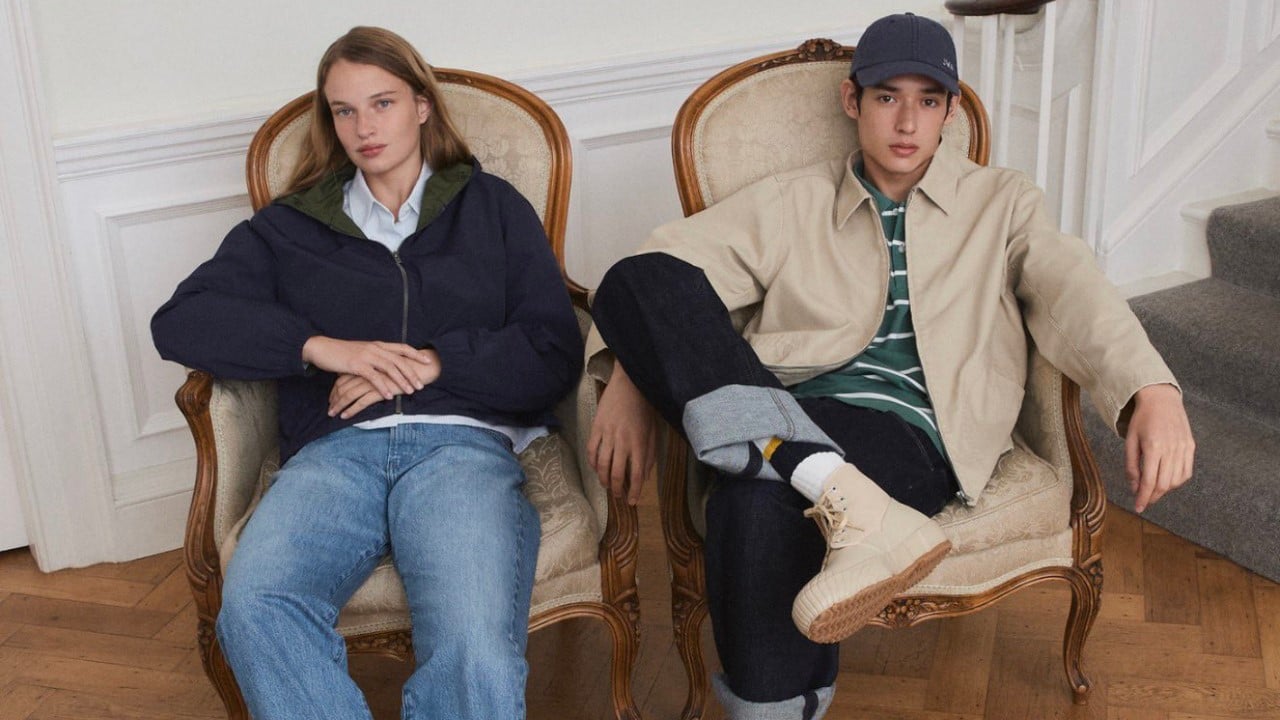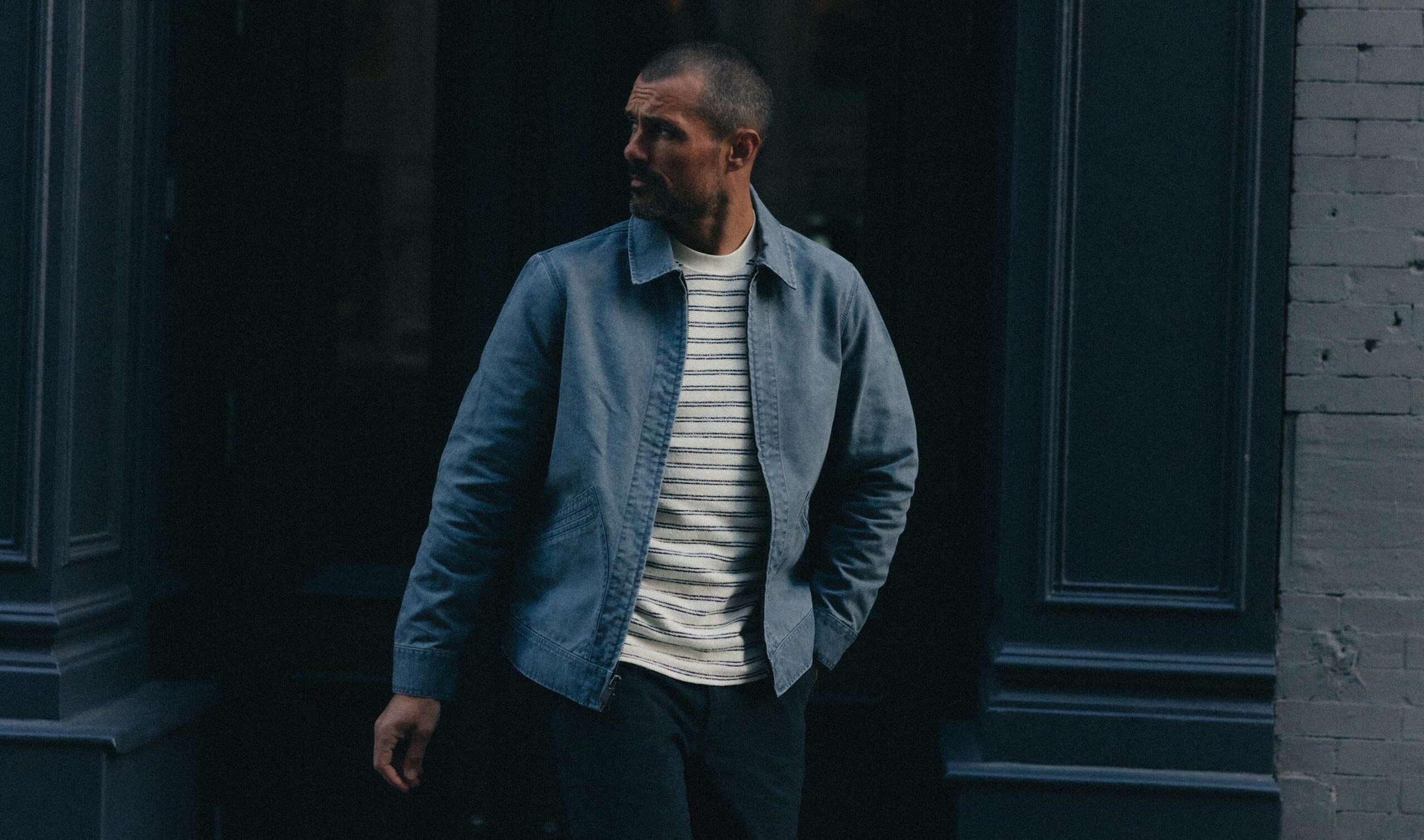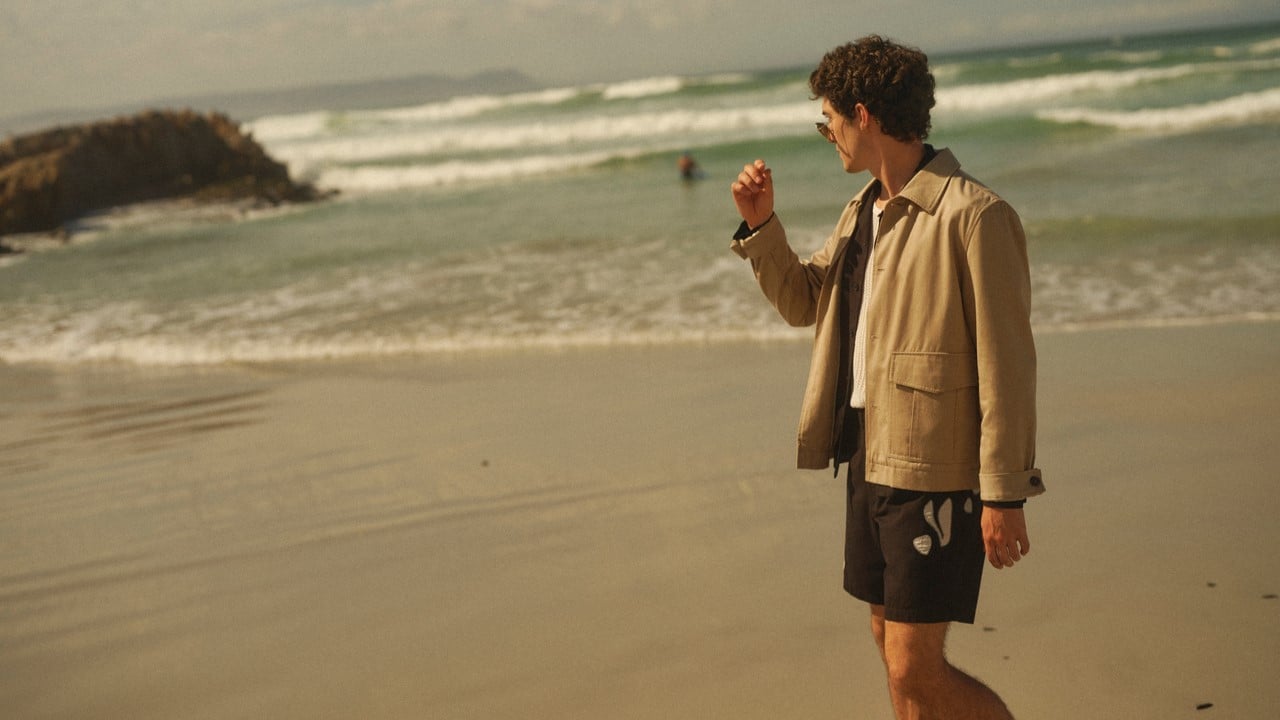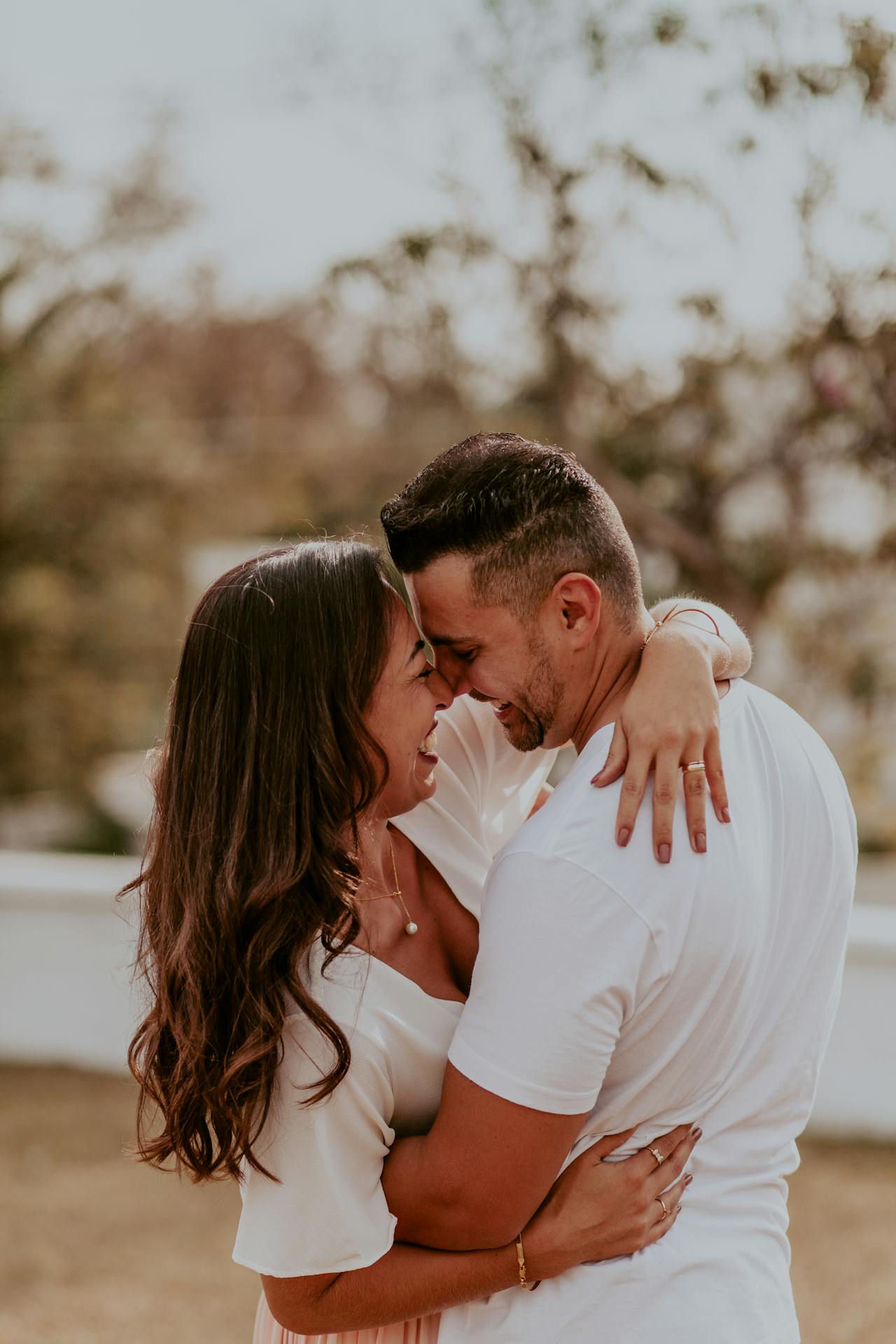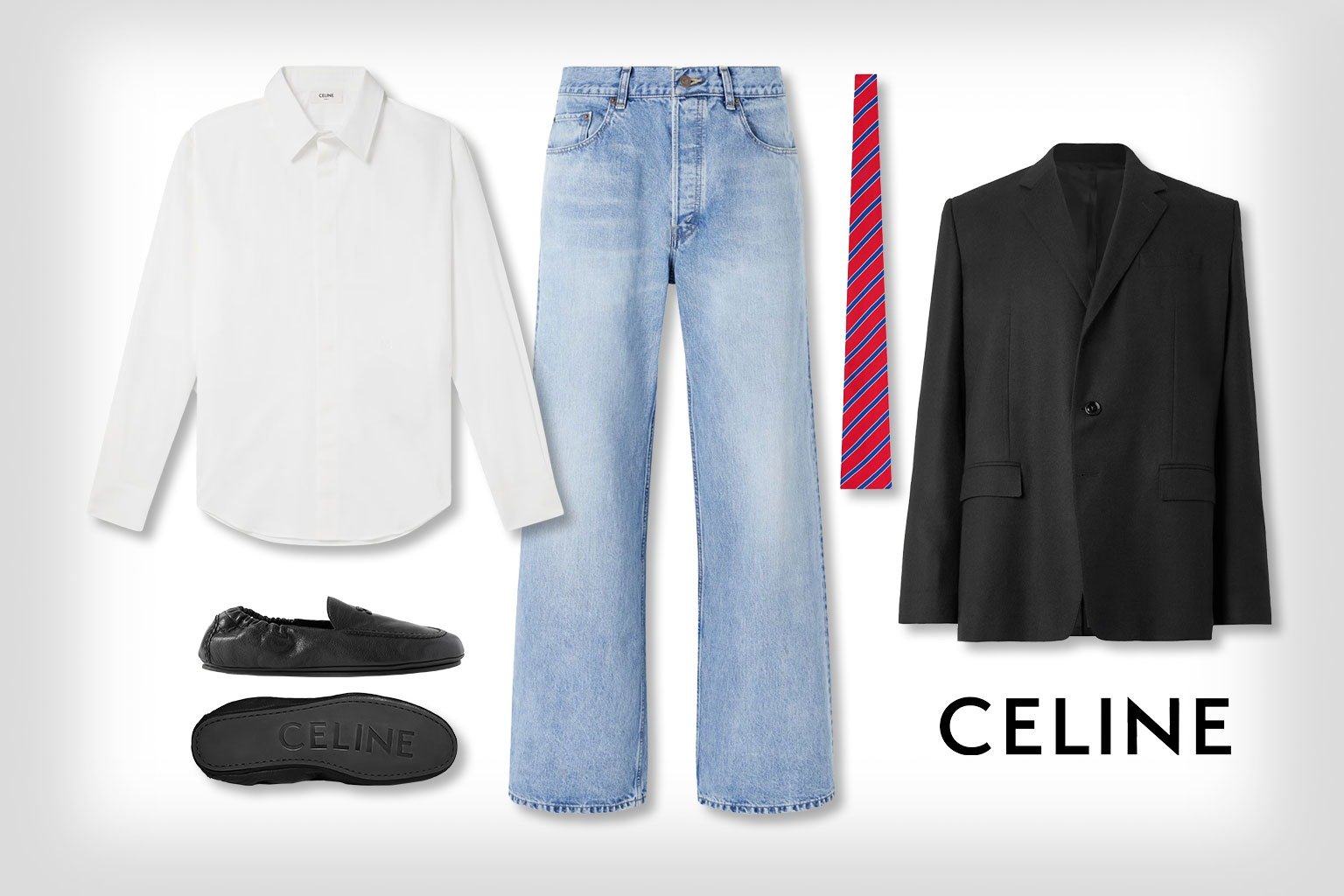Uniqlo x JW Anderson SS26 | Prep Goes Playful
Feb 25, 2026Skate to Street: How Skater Style Conquered Men’s Fashion
- May 17, 2024
- 0 Comments
896
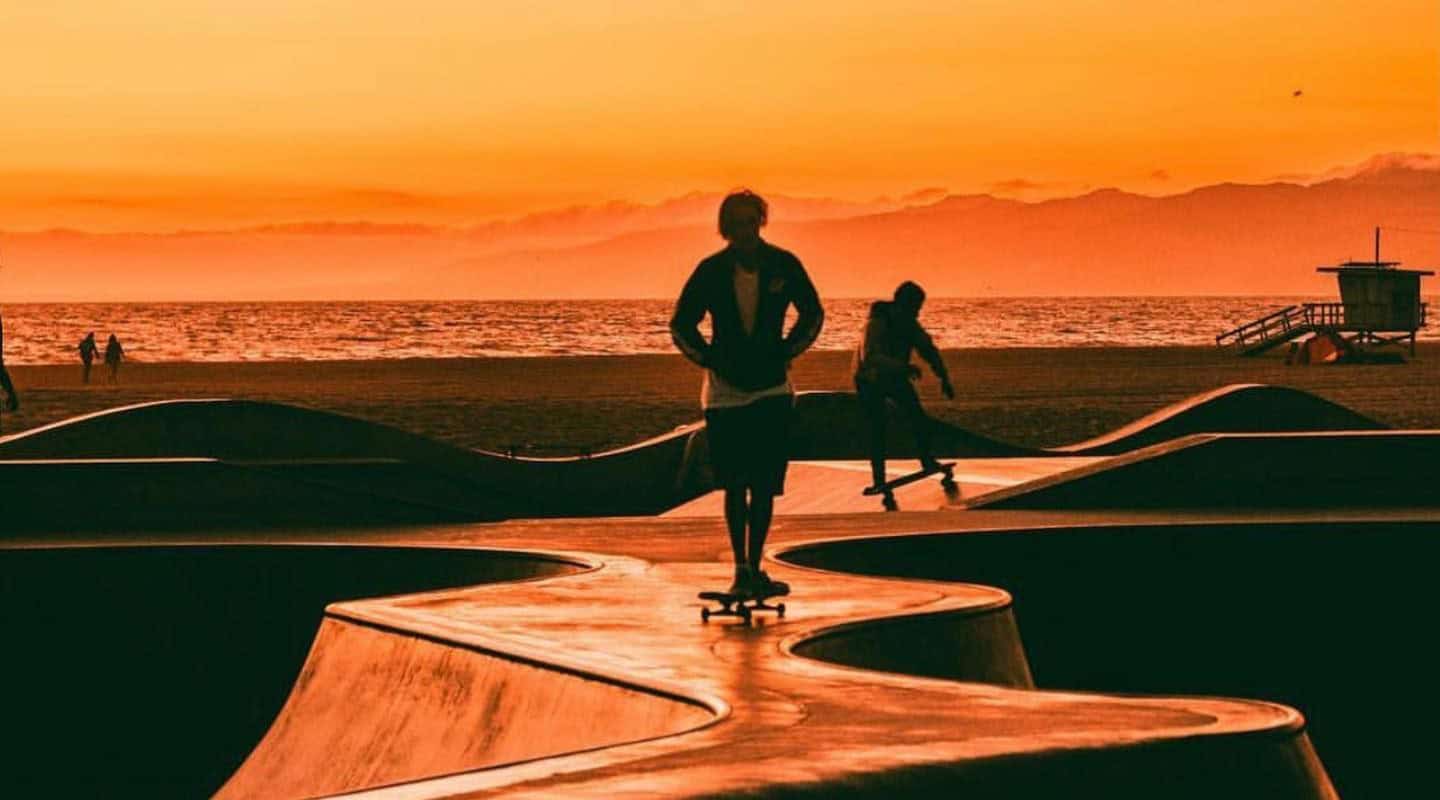
Picture this: a lone figure glides down the street, effortlessly weaving through the urban landscape on his trusty skateboard. His attire? A perfect blend of comfort and rebellion – loose-fitting jeans, a graphic tee that screams attitude, and sneakers that have seen their fair share of kickflips and ollies.
This, my friends, is the essence of skater style.
But skater fashion is more than just a way of dressing; it’s a lifestyle, a culture, a middle finger to the status quo. Born from the sweat and grit of skateboarding’s early days, this distinctive look has carved its way from the grip tape to the global runway.
It’s a style that speaks volumes without uttering a word, embodying freedom, creativity, and a devil-may-care spirit in every thread.
So, let’s dive into the heart and soul of skater style, shall we? We’ll explore its humble beginnings, its evolution into a fashion juggernaut, the key pieces that define it, and the icons who have made it their own. Buckle up because we’re in for one hell of a ride.
What Is Skater Style?
At its core, skater style is all about practicality and rebellion. It’s a look that emerged from skateboarders’ needs—clothing that could withstand the rigors of the sport while allowing for maximum movement and comfort. But it’s also a giant middle finger to the buttoned-up, conformist fashion of the mainstream.
Characterized by baggy silhouettes, graphic tees, durable sneakers, and of course, the ever-present skateboard, skater style has absorbed influences from punk, hip hop, and streetwear through the years.
But through it all, it’s maintained that anti-establishment ethos, that “screw you” attitude that makes it so damn appealing, even to those who couldn’t ollie their way out of a paper bag.
The Evolution of the Skater Aesthetic
The skater aesthetic didn’t just appear out of thin air – it’s evolved since the first daredevils decided to attach wheels to wooden planks. Let’s take a little rip through time, shall we?
The Beginnings in the ‘70s and ‘80s
Back in the early days of skateboarding, it was all about functionality. Skaters in the 1970s and ’80s rocked simple tees, durable sneakers, and baggy shorts—a reflection of the laid-back California lifestyle that birthed the sport.
Brands like Vans, founded in 1966, became synonymous with the scene, offering kicks that could take a beating and keep on rolling.
But Vans wasn’t the only brand making waves in the skate world. In 1973, Santa Cruz Skateboards was born, becoming one of the first companies dedicated solely to skateboarding. Their iconic screaming hand logo symbolized the rebellious spirit of skate culture.
Another key player was Powell Peralta, founded in 1978 by George Powell and Stacy Peralta. The brand’s Bones Brigade team, which included legendary skaters like Tony Hawk and Steve Caballero, helped to popularize skateboarding and bring it into the mainstream.
Thrasher magazine, founded in 1981, also significantly shaped skate culture. The magazine’s unapologetic, raw approach to covering skateboarding resonated with skaters and helped establish the sport’s counterculture credibility.
As skateboarding grew in popularity throughout the 80s, so did the influence of skate brands. Vision Street Wear, founded in 1976, gained a following for its bold graphics and bright colors, while Airwalk and Etnies, both founded in 1986, brought a fresh perspective to skate shoes with their innovative designs.
These brands laid the foundation for the explosion of skate fashion in the decades to come, cementing the sport’s place in popular culture and setting the stage for its evolution into a global phenomenon.
’90s Skater Fashion
But it wasn’t until the 1990s that skater style really found its voice. Grunge, punk, and hip hop all left their mark, with oversized jeans, band tees, and flannels becoming staples of the look.
This was also the era when skate brands like Stüssy and Supreme started blurring the lines between streetwear and skatewear, creating a fashion identity that was uniquely their own.
The influence of streetwear on skater style cannot be overstated. As hip-hop culture gained prominence in the ’90s, its fashion sense – baggy clothes, bold graphics, and a focus on sneakers – began to mesh with the skater aesthetic.
Brands like Supreme, which actually started as a skate shop in New York, began to incorporate more streetwear elements into their designs, creating a hybrid style that appealed to both skaters and hip-hop heads.
This cross-pollination between streetwear and skatewear led to a new era of fashion, one that celebrated individuality, creativity, and a DIY spirit. Skaters began to see their clothing not just as functional gear, but as a means of self-expression, a way to stand out from the crowd.
2000s Skater Fashion
Fast forward to the 2000s, and skater fashion had gone mainstream. Suddenly, you didn’t need to know your nosegrind from your nollie to rock the look. High fashion designers started co-opting skater elements into their collections, and the once-niche style was now on the backs of everyone from A-listers to average Joes.
But the influence went both ways. As skater style became more popular, streetwear brands began to take cues from the skate world, incorporating elements like bold graphics, unconventional materials, and a focus on comfort and functionality.
This symbiotic relationship between streetwear and skatewear continued to evolve, with each subculture feeding off the other to create new and exciting fashion trends.
Today, the lines between streetwear and skatewear are more blurred than ever. Palace and Supreme pieces are just as likely to be worn by hypebeasts as they are by hardcore skaters, and the aesthetic has been embraced by everyone from rappers to runway models.
But through all the evolution and mainstream adoption, skater style has never lost its edge. It remains a symbol of youthful rebellion, of creativity, and individuality in the face of conformity. And that, my friends, is why it endures.
Key Components of Skater Style for Men
So, what exactly makes up the skater look? Let’s break it down, piece by piece.
Graphic Tees: The Emblem of Skate Style
Ah, the graphic tee – the heart and soul of skater style, the canvas upon which the very essence of the culture is splashed in bold, unapologetic strokes. It’s more than just a piece of clothing, my friends. It’s a statement, a middle finger to the status quo, a way to show the world where your allegiances lie and what you stand for.
When it comes to iconic graphics, the skate world has no shortage of heavy hitters. Take the Thrasher magazine logo tee, for example. That flaming logo has been seared into the chests of skaters since the 1980s, a badge of honor for those who live and breathe the sport.
Or how about the Santa Cruz screaming hand tee? That disembodied hand, fingers splayed and mouth agape in a primal scream, is the stuff of skate legend. Designed by artist Jim Phillips way back in 1973, it perfectly encapsulates the raw, rebellious energy of skateboarding.
Let’s not forget Powell Peralta’s Bones Brigade tees, worn by Tony Hawk, the Birdman himself. That skull and sword logo is as badass as it gets, a symbol of the elite squad that revolutionized the sport in the 1980s and ’90s.
But it’s not all about the big names. Independent Truck Company, with its simple but bold “Independent” logo tees, pays homage to the DIY spirit of skateboarding. It reminds us that all you really need to shred is a deck and a set of trucks—the rest is just noise.
In the ’90s and 2000s, brands like Alien Workshop and Element pushed the boundaries of skate graphics, with trippy, mind-bending designs that stood out like a sore thumb (in the best way possible).
Alien Workshop’s psychedelic visuals were a trip unto themselves, and Element’s zen-like nature graphics brought a moment of calm to the chaos of the skatepark.
And today? Brands like Palace and Supreme are carrying the torch, dropping graphics that are as irreverent as they are iconic. These are the tees that launch a thousand hypebeasts, the ones that sell out in seconds and end up on the resale market for eye-watering sums.
But at the end of the day, it doesn’t matter if you’re rocking a classic Thrasher logo or a one-off collab with a big-name artist. The graphic tee is the ultimate expression of skate style, a way to show the world who you are and what you stand for. It’s a middle finger to conformity, a rallying cry for the misfits and the rebels.
So go ahead, throw on that graphic tee, and wear it like a second skin. Let it be your armor as you take on the world, one ollie at a time. Because in the immortal words of the great poet Lil Wayne (yes, really), “Skateboarding is not a crime. It’s a lifestyle.” And damn if that lifestyle doesn’t look good on a tee.
Skater Footwear: The Durable Foundation
Of course, no skater outfit is complete without the right kicks. Skate shoes are built for abuse, with flat rubber soles for maximum grip and durable materials that can withstand hours of shredding.
Brands like Vans,
Bottoms: Comfort Meets Style
When it comes to pants, skaters prioritize comfort and mobility above all else. Loose-fitting jeans and cargo pants allow for a full range of motion (essential for nailing those flip tricks), and reinforced materials ensure they can take a beating. Brands like Levi’s, Dickies, and Carhartt have been skater favorites for decades.
Outerwear: Layering for Versatility
Skater style is all about layering, and outerwear plays a big role in that. From classic hoodies to rugged flannels and bomber jackets, these pieces add warmth, style, and a touch of attitude to any outfit. Brands love to plaster them with logos and graphics, making them wearable badges of skater cred.
Accessories: The Finishing Touches
No skater look is complete without the right accessories. Beanies and snapbacks keep the sun (and the haters) out of your eyes, and backpacks and sling bags offer a practical way to haul your gear. And don’t forget about socks – bold patterns and logo prints are the name of the game here.
Skater Hairstyles & Grooming Trends
Of course, skater style doesn’t stop at the neck. The right haircut and a bit of facial fuzz can take your look to the next level.
Men’s Skater Hairstyles
When it comes to hairstyles, skaters run the gamut from short and low-maintenance to long and free-flowing. The undercut is a classic choice, offering a sharp contrast between the longer top and closely cropped sides. But plenty of skaters rock shaggier styles that give off that effortless, IDGAF vibe.
Skater Style Facial Hair
As for facial hair, the skater look is all about looking like you didn’t try too hard. A bit of stubble or a casual beard adds a touch of rugged masculinity without veering into hipster territory. The key is to keep it looking natural and unforced – like you just rolled out of bed and hopped on your board.
Men’s Skater Style Icons
Of course, every subculture has its heroes, and the world of skateboarding is no exception. These guys have taken skater style to new heights, both on and off the board.
Tony Hawk
The Birdman himself, Tony Hawk, is the godfather of modern skateboarding. His effortless, laid-back style – think baggy jeans, graphic tees, and classic skate shoes – has been emulated by countless skaters over the years.
Nyjah Huston
On the other end of the spectrum, you’ve got guys like Nyjah Huston, who bring a more contemporary, athletic edge to skater fashion. His look is sleeker and more fitted, reflecting the evolution of the style in recent years.
Dylan Rieder
And of course, we can’t forget the late, great Dylan Rieder, who brought a touch of high fashion to the skate world. With his slim jeans, leather jackets, and designer sneaks, Rieder showed that you could embrace skater style without sacrificing sophistication.
Skater Outfits for Men: How to Wear the Skater Aesthetic
So, you want to inject a bit of that skater swagger into your own wardrobe? Here’s how to do it without looking like a poser.
Start with the basics—a graphic tee and loose-fitting jeans or cargo pants. Opt for classic skate shoes (bonus points if they’re a little scuffed up). Layer on a hoodie or flannel for a touch of texture and warmth. And don’t forget the accessories—a beanie, a backpack, maybe a chain wallet if you’re feeling extra edgy.
The key is to keep it looking effortless and authentic. Skater style is all about comfort and self-expression, so don’t be afraid to let your personality shine through. And remember, the most important accessory of all? A genuine love for the culture and the sport.
Final Verdict
At the end of the day, skater style is more than just a fashion trend—it’s a way of life. It’s a middle finger to conformity, a celebration of individuality and creativity in a world that often demands the opposite.
Whether you’re a die-hard skater or just someone who appreciates the aesthetic, embracing skater fashion is about more than just looking good. It’s about tapping into that rebel spirit, that “screw you” attitude that has made skateboarding such an enduring cultural force.
So go ahead, throw on that graphic tee, and hop on your board. The streets are waiting, and the world is your skatepark.
FAQ
-
-
In a nutshell, skater style is defined by rebellion, comfort, and self-expression. It is all about functional fashion that looks good while letting you move freely and take on the world—or at least the halfpipe—with confidence and attitude.
-
Graphic tees, baggy pants, skate shoes, and layers like hoodies and flannels – these are the building blocks of any solid skater outfit. Don’t forget the accessories, too – beanies, caps, and backpacks add that extra touch of skater cred.
-
You can’t go wrong with a classic bomber or denim jacket, but coach jackets and windbreakers are also solid choices. Look for durable materials and a relaxed fit that won’t restrict your movement.
-
Two words: comfort and mobility. When you spend hours perfecting your kickflip, the last thing you want is tight, restrictive clothing holding you back. Plus, that oversized look just screams effortless cool.
-
Publisher: Source link


